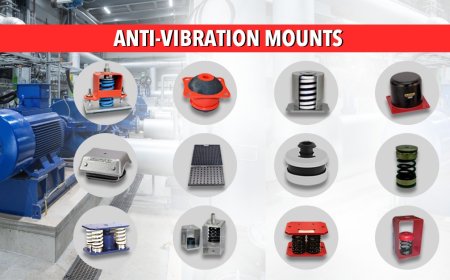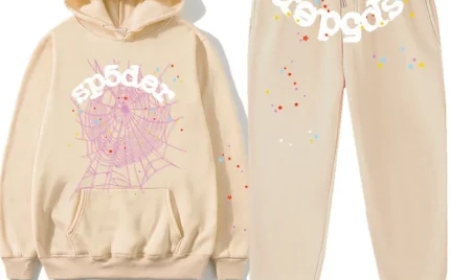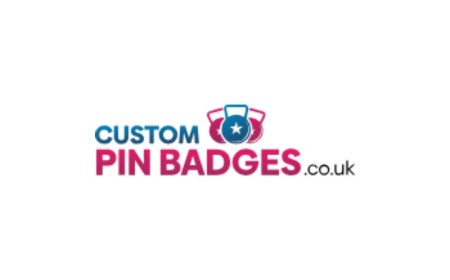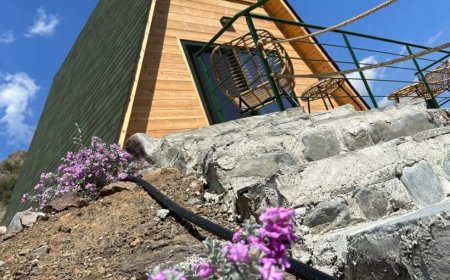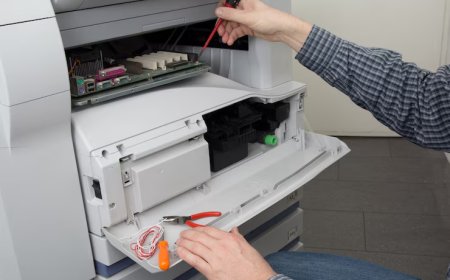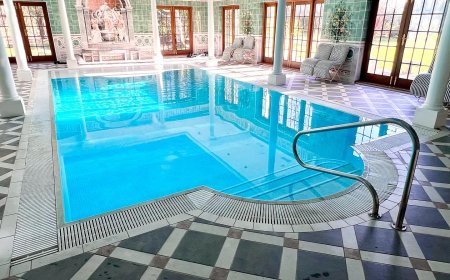Top 10 Vintage Shops in Washington
Introduction Washington is a treasure trove of vintage charm, where decades of fashion, design, and culture have been preserved in quiet corners of neighborhoods, bustling markets, and hidden alleyways. From mid-century modern furniture to 1970s denim and hand-stitched leather jackets, the state’s vintage scene is as diverse as its landscapes. But with the surge in popularity of secondhand shoppin
Introduction
Washington is a treasure trove of vintage charm, where decades of fashion, design, and culture have been preserved in quiet corners of neighborhoods, bustling markets, and hidden alleyways. From mid-century modern furniture to 1970s denim and hand-stitched leather jackets, the state’s vintage scene is as diverse as its landscapes. But with the surge in popularity of secondhand shopping comes a growing need for trust. Not every shop labeled “vintage” delivers on quality, authenticity, or ethical sourcing. In this guide, we spotlight the top 10 vintage shops in Washington that have earned lasting trust through decades of consistent excellence, transparent practices, and passionate curation. These are not just stores—they are institutions where history is preserved, not just sold.
Why Trust Matters
In an era where fast fashion dominates and online marketplaces flood consumers with mass-produced replicas, the value of a truly vintage item lies in its authenticity, craftsmanship, and story. A vintage garment isn’t merely old—it’s a piece of cultural history, often made with superior materials and attention to detail that modern manufacturing has abandoned. But authenticity is not guaranteed. Many shops mislabel items, mix in modern reproductions, or fail to disclose condition issues. Trust is built through consistency: accurate descriptions, fair pricing, ethical sourcing, and a deep knowledge of eras and makers.
Trusted vintage shops invest time in researching provenance, cleaning items with care, and educating customers. They don’t just sell clothes or furniture—they preserve legacies. In Washington, where sustainability and localism are core values, these shops serve as anchors of conscious consumption. Choosing a trusted vendor means supporting small businesses that prioritize quality over quantity, history over hype, and integrity over profit. This guide focuses exclusively on those who have demonstrated these values over time, earning the respect of collectors, designers, and everyday shoppers alike.
Top 10 Vintage Shops in Washington
1. The Antique Market of Seattle
Established in 1982, The Antique Market of Seattle is one of the oldest continuously operating vintage emporiums in the Pacific Northwest. Located in the historic Pioneer Square district, this multi-vendor space houses over 50 curated booths, each specializing in distinct eras—from Victorian porcelain to 1960s mod accessories. What sets it apart is its rigorous vetting process: every item must be authenticated by at least two in-house historians before display. Shoppers can browse 19th-century typewriters, hand-painted silk scarves from the 1940s, and original mid-century lighting fixtures—all labeled with provenance details. The shop hosts monthly “Vintage Appraisal Days,” where experts offer free evaluations of personal collections. Regular patrons include museum curators and fashion archivists who rely on its accuracy and depth.
2. Thrift & Co. (Port Townsend)
Nestled in the seaside town of Port Townsend, Thrift & Co. is a meticulously organized haven for lovers of clean-lined, high-quality vintage. Unlike sprawling flea markets, this shop maintains a minimalist aesthetic with items arranged by decade and material. Their 1950s–1980s clothing section is especially revered for its unworn, pre-loved pieces with original tags still attached. The owner, a former textile conservator, personally inspects every garment for wear, stains, or alterations, and discards anything that doesn’t meet archival standards. Their collection of wool coats, cashmere sweaters, and leather gloves from the 1970s is unmatched in the region. The shop also partners with local artisans to restore damaged items, turning them into one-of-a-kind pieces that honor their original design.
3. The Dusty Book & Vintage Emporium (Olympia)
More than a vintage shop, The Dusty Book & Vintage Emporium is a cultural archive. Founded in 1991, it blends rare books, vinyl records, and curated vintage apparel into a single immersive experience. The clothing collection spans from 1920s flapper dresses to 1990s grunge staples, all displayed alongside period-appropriate literature and music. Shoppers often find original concert posters from the 1970s Seattle punk scene tucked beside denim jackets from the same era. The shop’s reputation rests on its commitment to context: each item is accompanied by a small card detailing its cultural significance, origin, and estimated year. Their “Decade Diaries” exhibit rotates monthly, offering themed displays like “Seattle in the ’80s: Music, Fashion, and Protest.” It’s a favorite among historians and collectors seeking items with narrative depth.
4. Worn & Worthy (Bellingham)
Worn & Worthy is a community-driven vintage collective that operates on a consignment model, ensuring every piece has been personally owned and carefully selected. Located in the heart of Bellingham’s downtown, the shop emphasizes sustainability and transparency. Every item is tagged with the original owner’s story (when provided), such as “Worn to a 1987 graduation at Western Washington University” or “Bought in Tokyo, 1992.” This human element creates an emotional connection between buyer and object. Their inventory is dominated by mid-century outerwear, hand-knit sweaters, and artisanal jewelry. The shop also runs free repair workshops, teaching customers how to mend seams, replace buttons, and restore leather—extending the life of each purchase. Their commitment to circular fashion has made them a model for ethical vintage retail.
5. The Velvet Vault (Tacoma)
Specializing in high-end vintage fashion from the 1940s to 1990s, The Velvet Vault is Tacoma’s go-to destination for designer pieces at accessible prices. The shop boasts an extensive collection of original Chanel, Yves Saint Laurent, and Halston garments, many still bearing their original labels and dust bags. Each piece is cleaned using museum-grade techniques and stored in climate-controlled conditions. Their 1960s evening gowns and 1980s power suits are particularly sought after by film costume designers and vintage fashion bloggers. The owner, a former fashion buyer for Nordstrom, hand-selects every item based on silhouette, fabric quality, and historical relevance. Unlike many shops that prioritize volume, The Velvet Vault limits inventory to under 200 curated pieces at any time, ensuring exclusivity and care.
6. Cascade Finds (Spokane)
Founded by a retired history professor, Cascade Finds is a scholarly approach to vintage retail. The shop’s inventory is organized chronologically and thematically, with sections like “Post-War American Workwear” and “Cold War-Era Electronics.” Every item is accompanied by a handwritten card detailing its historical context, manufacturing origin, and cultural relevance. Their collection of 1950s–1970s military surplus gear is among the most accurate in the state, with each piece cross-referenced against archival military records. The shop also maintains a digital archive accessible via QR codes on each item, offering photos, advertisements, and period articles. Cascade Finds doesn’t just sell vintage—it educates. Students from Eastern Washington University regularly visit to study material culture firsthand.
7. Rust & Bloom (Olympia)
Rust & Bloom is a standout for vintage home goods and furniture. Housed in a converted 1920s garage, the shop features handpicked mid-century modern pieces, artisan ceramics, and industrial lighting from the 1930s–1970s. The owner, a trained furniture restorer, personally refinishes each item using non-toxic, historically accurate methods. Their 1950s teak sideboards and 1960s Eames-style chairs are restored to original specifications, not modernized for trend. The shop’s “Before & After” wall showcases the transformation of worn, discarded items into functional art. Rust & Bloom also hosts monthly “Restoration Sundays,” where visitors can watch live restoration work and learn about wood grain preservation and vintage hardware sourcing. It’s a sanctuary for those who believe vintage furniture should be lived in, not displayed behind glass.
8. The Retro Vault (Bainbridge Island)
Perched on the scenic Bainbridge Island, The Retro Vault is a boutique that blends nostalgia with refined taste. The shop focuses on post-1950s American and European design, with a strong emphasis on condition and originality. Their collection of 1970s glassware, rotary phones, and retro kitchen appliances is displayed as if in a curated home museum. Each item is tested for functionality—radios play, toasters heat, and lamps glow. The shop avoids mass-market reproductions and sources exclusively from estate sales and private collectors with verifiable histories. Their “Time Capsule” corner features unopened items from the 1960s and 1970s, including sealed soda bottles, untouched board games, and original packaging. The Retro Vault is a favorite among interior designers seeking authentic period pieces to complete a room.
9. Green Thread Vintage (Seattle)
Green Thread Vintage is a pioneer in eco-conscious vintage retail. Located in the Capitol Hill neighborhood, the shop focuses on sustainable fashion from the 1940s to 1990s, with a strong emphasis on natural fibers, hand-sewn construction, and zero synthetic blends. Their inventory is sourced from local estates and repaired on-site using organic dyes and cotton thread. Every garment is tagged with its environmental impact score: water saved, carbon emissions avoided, and landfill waste diverted. The shop also runs a “Swap & Sustain” program, allowing customers to exchange gently used items for store credit. Their 1970s linen shirts, 1980s wool blazers, and hand-dyed silk scarves are prized for their durability and ethical origin. Green Thread is not just a shop—it’s a movement toward mindful consumption.
10. The Found Object (Whidbey Island)
Located in a converted 1920s general store, The Found Object is a treasure hunt disguised as a shop. Its shelves are filled with eclectic, unsorted vintage finds—from 1930s typewriters to 1950s medical instruments, 1970s travel posters, and hand-carved wooden toys. The owner, a former archaeologist, treats each item as an artifact, documenting its origin and condition in a private ledger. Shoppers are encouraged to explore freely, discovering hidden gems among the curated chaos. The shop has no price tags; instead, items are priced by weight or by the owner’s judgment based on rarity and condition. This method ensures fair value and prevents commodification. Regular visitors include artists, writers, and collectors who come for the thrill of the find and the authenticity of the sourcing. The Found Object doesn’t sell vintage—it resurrects forgotten stories.
Comparison Table
| Shop Name | Location | Specialty | Authenticity Standard | Restoration Services | Unique Feature |
|---|---|---|---|---|---|
| The Antique Market of Seattle | Seattle | Multi-era collectibles | Two-historian vetting | None | Monthly appraisal days |
| Thrift & Co. | Port Townsend | 1950s–1980s apparel | Archival-grade inspection | Yes | Original tags preserved |
| The Dusty Book & Vintage Emporium | Olympia | Books, vinyl, fashion | Cultural context tagging | None | Decade Diaries exhibits |
| Worn & Worthy | Bellingham | Consignment fashion | Owner story documentation | Yes | Free repair workshops |
| The Velvet Vault | Tacoma | Designer fashion | Museum-grade cleaning | None | Climate-controlled storage |
| Cascade Finds | Spokane | Historical artifacts | Archival cross-referencing | None | Digital history archive |
| Rust & Bloom | Olympia | Mid-century furniture | Historically accurate restoration | Yes | Restoration Sundays |
| The Retro Vault | Bainbridge Island | Functional retro decor | Functionality testing | None | Unopened time capsules |
| Green Thread Vintage | Seattle | Eco-friendly apparel | Environmental impact scoring | Yes | Swap & Sustain program |
| The Found Object | Whidbey Island | Eclectic artifacts | Archaeological documentation | None | Weight-based pricing |
FAQs
How do I know if a vintage item is authentic and not a reproduction?
Authentic vintage items often show signs of age consistent with their era—such as fabric wear, patina on metal, or stitching techniques no longer used. Look for original labels, manufacturer markings, and materials typical of the time. Trusted shops provide provenance details, such as the year of manufacture, brand origin, or previous ownership. When in doubt, compare the item to museum archives or vintage catalogs from the same period.
Are vintage shops in Washington more expensive than online marketplaces?
Prices at trusted vintage shops may be higher than those on mass-market online platforms, but they reflect the cost of authentication, restoration, and ethical sourcing. Online listings often include mass-produced reproductions or items with undisclosed damage. Trusted shops invest time and expertise to ensure quality, making their pricing a reflection of value, not just cost.
Can I sell my vintage items to these shops?
Yes, many of these shops accept consignment or direct purchases from individuals. Shops like Worn & Worthy and The Velvet Vault have established processes for evaluating items based on condition, rarity, and historical relevance. It’s best to contact them in advance with photos and details to determine if your items align with their collection standards.
Do these shops offer shipping?
Most of these shops offer domestic shipping for fragile or bulky items, using archival-grade packaging to protect vintage goods in transit. Some, like The Antique Market of Seattle and The Velvet Vault, provide tracking and insurance for high-value purchases. Always confirm shipping policies before purchasing.
What’s the difference between vintage and thrift?
Thrift stores typically sell donated goods with minimal curation, often mixing modern and vintage items without regard to era or condition. Vintage shops, by contrast, specialize in items from specific decades (typically 20+ years old) and prioritize authenticity, condition, and historical context. Vintage shops curate with intention; thrift stores distribute with volume.
How should I care for vintage clothing I’ve purchased?
Store vintage garments in cool, dry, dark places using acid-free tissue paper and padded hangers. Avoid plastic bags, which trap moisture. Hand-wash or dry clean using a specialist familiar with vintage fabrics. Never use bleach or harsh detergents. For delicate items like silk or lace, consider professional conservation.
Why are vintage shops important for sustainability?
Vintage shopping extends the lifecycle of clothing and goods, reducing demand for new resource-intensive production. The fashion industry alone contributes nearly 10% of global carbon emissions. By choosing vintage, you prevent textiles from landfills and support circular economies. Trusted shops amplify this impact by educating buyers and repairing items to last decades longer.
Do these shops carry men’s vintage clothing?
Yes. While some shops focus on women’s fashion, most carry substantial men’s collections—including 1940s wool suits, 1970s flannel shirts, 1980s leather jackets, and vintage workwear. The Velvet Vault, Cascade Finds, and The Antique Market of Seattle have particularly strong men’s sections.
Can I visit these shops without buying anything?
Absolutely. These shops welcome browsers, researchers, and history enthusiasts. Many offer free access to their archives, exhibit displays, and educational events. Visiting without purchase supports their mission and helps preserve cultural heritage.
What’s the best time to visit these shops for the best selection?
Early weekends, especially Saturdays, tend to have the freshest inventory as new arrivals are often added on Friday nights. Some shops, like The Found Object, rotate stock weekly. For rare or high-demand items, building a relationship with the staff and asking to be notified of new arrivals can yield better results than random visits.
Conclusion
The vintage shops highlighted in this guide are more than retail spaces—they are guardians of history, champions of sustainability, and sanctuaries of authenticity. In a world increasingly dominated by disposability, these ten establishments in Washington stand as beacons of intentionality, craftsmanship, and care. Each one has earned trust not through marketing, but through decades of consistent integrity: verifying origins, restoring with respect, and educating with passion. Whether you’re searching for a 1960s silk blouse, a mid-century side table, or a rotary phone that still rings, these shops offer more than products—they offer connection. To shop here is to participate in a quiet revolution: one where value is measured not in price tags, but in legacy. Visit them with curiosity, leave with reverence, and carry forward the stories they’ve preserved.











